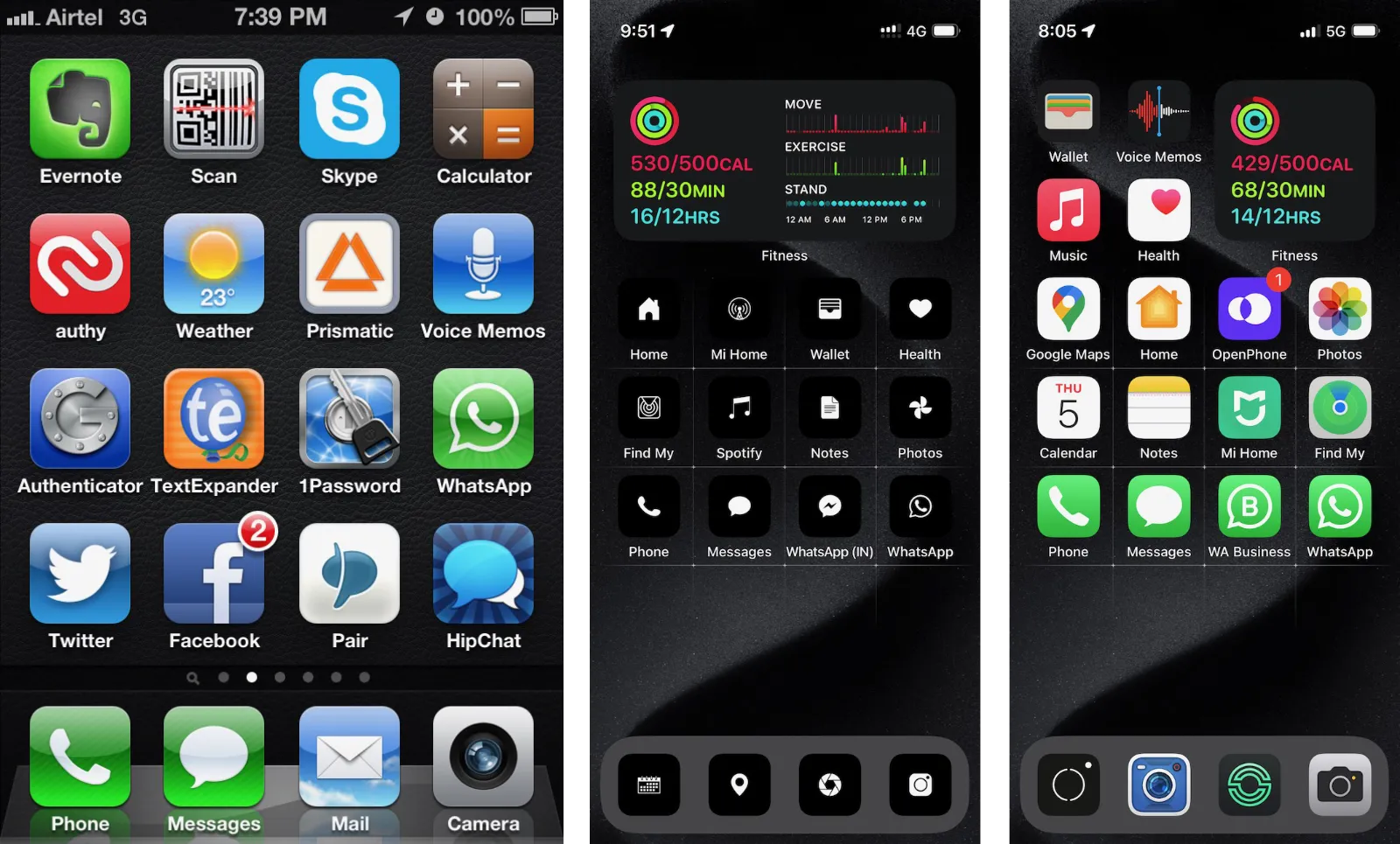Phone
The best tools do their job and then get out of the way.
In the ways of Marie Kondo1, I feel that “The question of what apps you want on your phone is how you want to manage your digital life.”
“Digital minimalism definitively does not reject the innovations of the internet age, but instead rejects the way so many people currently engage with these tools.” — Cal Newport
Notifications OFF
Ten years ago, I suggested to disable all notifications by default. This is best done at the time of app installation. When asked to “Allow Notifications,” disable it right then and there.
“Never be so dependent on technology that a notification is the only thing that brings you hope.”
Of course, depending on your occupation and needs, a few critical notifications should be kept ON. This will be less than 10% of your app. More than 90% of the apps on your device have no reason to notify you of anything.
If you missed it during installation, it is a good habit to routinely check up on your devices and choose what notifications you get for every app on your phone. This might seem like a daunting task, but it’s very rewarding. Similar to deleting apps that you don’t need of your phone, choosing notifications helps you take charge of what’s allowed to take your attention.
Social Media
For the extremes, some have said that “people who turned to social media for news were less likely to know what was happening in the world – and more likely to have heard false or unproven claims and conspiracy theories.”
If you are not willing to go to that extreme, and if you have to use social media apps on your phone—stay logged off. That barrier to logging in when every time should give you the much-needed push to stay away from Social media Apps on your phone. Perhaps restrict it to your desktop computer at a specific time.
Parental control yourself from social media.
Phone / VOICE
Actual phone calls have become more of a chore and an overbearing task these days. Whether you should answer every phone call depends on your profession and current social context, but I strongly feel it is optional for most people.
If you want to try this, set your phone to DND (Do not Disturb) by default and disallow calls from unknown numbers. Next, create a separate non-DND or a whitelist of people who can call you and bypass your DND settings. So, nothing calls by default except those in the manually selected whitelist—avoiding unknown and unscheduled calls.
Of course, you schedule your chores to call back the missed calls or disable the DND on specific days/times you expect the phones you need to answer.
Smartwatch
A smartwatch can be a suitable replacement for your phone in the right circumstances. You may no longer need to carry your phone all the time - morning walks, running, exercise, etc.
Defaults
You have to decide when to use your phone, not the other way around.
You don’t have to give up your Smartphone. There is much advice, articles, and how-tos on alternatives such as “dumb phones,” grayscale screens, phone lockers, ink-screen phones, etc. They are temporary and fleeting solutions that are unlikely to last and will be replaced by another gimmick.
Instead, start slowly and minimally, but look at curving your habits via a natural process and pattern. It is like parenting—harsh words, detention, and forceful actions don’t really work, but following a pattern of natural and slow deviation to better solutions works in the long run and lasts.
Here are some interesting habits that you can try;
- No devices in the bedroom or near your bed.
- The phone is not your first thing in the morning. Making and eating breakfast is a good alternative.
- Consider a wind-down routine at a specific time-bracket in the evening; close-up, or shut-down all devices between 9:00PM - 9:30PM.

References
A lot of people have good advices, and how to setup your phone for a distraction free digital life. Here are a few for further reading and try your own phone setup that works for you.
- Six Years With a Distraction-Free iPhone (archive)
- Set Up a Minimalistic iPhone and Use It With Purpose (archive)
- A Radical Guide to Spending Less Time on Your Phone (archive)
- The Optimal iPhone Settings and Best Apps for Productivity, Focus, and Health (archive)
- A Phone Setup That Will Make You More Mindful (archive)
- What My Minimalist Phone Looks Like (archive)
- Turning my smartphone into a boring tool (archive)
- How to overcome Phone Addiction (archive)
- No “Hello”, No “Quick Call”, and no Meetings Without an Agenda (archive)
- How Context Switching Sabotages Your Productivity (archive)
- iPhone dumbphone is an interesting setup by Stepan Parunashvili.
-
Marie Kondo is a Japanese organizing consultant, author, and TV presenter. She popularized the KonMari method of organization. It consists of gathering together all of one’s belongings, one category at a time, and then keeping only those things that “spark joy”, and choosing a place for everything from then on. ↩